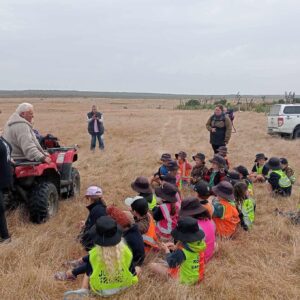



Kia ora e hoa mā.
This winter 2019 issue of Ako focusses on community and the different ways it is evidenced within education.
There are many quotes about the power of community but one that really resonates with me is this from Meg Wheatley, an American writer and management consultant with expertise in organisational behaviour: “There is no power for change greater than a community discovering what it cares about.”
When I think about community, I think about the many different communities that I have the privilege to be a part of, many of whom are focussed on enabling positive change within education.
There’s the community that is NZEI Te Riu Roa, made up of members from across the education landscape – we know the power of the collective, we know that all of us working together to achieve a common goal is so very powerful, we know that the whole is greater than the sum of its parts. This year, we have seen proof of this – and we can be proud of how we have taken the wider community of Aotearoa with us.
There’s the community that is NZEI Te Riu Roa, made up of members from across the education landscape – we know the power of the collective, we know that all of us working together to achieve a common goal is so very powerful.
In my role as a teacher and then principal, I think about the community of staff, teachers, caretakers, support staff – all of those who work with the community that is the whānau, aiga, family of our students. I think about the community of the wider education sector that works alongside us to support our students to reach their potential.
As the principal of a school with a large Samoan community, I witnessed the powerful change that came from aiga, staff and the Board of Trustees working together. Together, we achieved the goal of embracing the language, culture and identity of our Samoan children through the
introduction of our bilingual classrooms. No one member of that community could have achieved this outcome by themselves – it took all of us working and learning together with courage, and playing our respective parts to make it happen.
No matter where we are or who we are, we are all part of many different communities that often intersect, inform and support each other towards achieving common goals. In reading this issue of Ako, I see this expressed in the many different examples of communities working together.
I have to say that the feeling of being a part of something that is so much bigger than yourself, working towards really making a difference, is second to none.
Lynda Stuart is the NZEI Te Riu Roa National President, Te Manukura
Related Posts

The key obligation for governments is to resource the early childhood care and education sector in order to provide high quality, culturally sustaining provision, since research has reinforced that this serves both individual and societal long-term wellbeing. So why are they not doing this?

From making lanterns and sharing kai to discos, art auctions and kapa haka, there are many different ways to celebrate Matariki and Puanga. Ako asked five kura from around Aotearoa how they mark this special time of year.

Working at a school on the Chatham Islands demands resilience, innovation and a deep sense of connection. Kirsten McDougall spoke with staff at Te One School to find out what it means to educate in one of the most remote communities in Aotearoa.

At Arakura School in Wainuiomata, Lower Hutt, lunchtime isn’t just about food – it’s about community, connection and learning. Instead of outsourcing school lunches, staff and tamariki grow, prepare and serve nutritious kai together. The entire school gathers each day to share a meal, turning lunchtime into a rich learning experience.